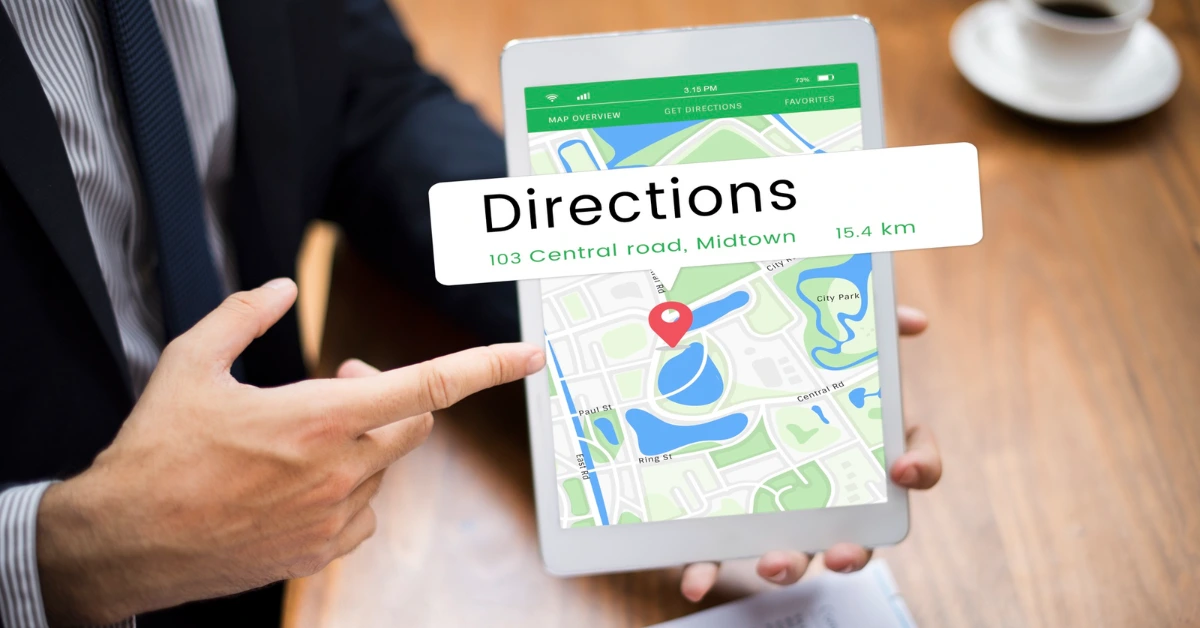Choosing the right SEO company is crucial for improving your website’s visibility, rankings, and organic traffic. The ideal SEO agency will align with your goals (e.g. increasing sales, leads, or brand awareness), use ethical strategies, and communicate clearly. Since “SEO” involves many tactics (on-page optimization, technical fixes, content strategy, link-building, etc.), hiring a knowledgeable firm can save time and get better results. In essence, you want a partner, not just a vendor – one with proven expertise in your industry and a transparent process.
1. Define Your SEO Goals and Budget

Before you begin your search, clearly outline your SEO objectives and how much you can invest. Are you aiming for more online sales, better brand visibility, or higher traffic? Having specific goals (like “boost organic leads by X%” or “rank for key product terms”) will guide which services you need. Also set a realistic budget. SEO pricing varies widely based on project scope: Clutch recommends knowing your budget upfront since it determines which agencies fit. As a rule of thumb, experts suggest allocating at least a few hundred to a few thousand dollars per month. For example, WebFX notes that a typical monthly SEO budget falls between $500 and $7,000 depending on business size and needs. Decide if you want a monthly retainer, a fixed-fee project, or hourly consulting, since different models suit different goals. Clear goals and budget help narrow your options and prevent wasted effort later.
2. Research and Shortlist Potential Agencies

With requirements in hand, start researching SEO firms that match your criteria. Ask colleagues or industry peers for referrals—word-of-mouth is a top source for finding reputable agencies. Also, use targeted search queries to find specialized agencies, for example:
- “Top ecommerce SEO agencies”
- “Best local SEO company for small business”
- “SEO agencies for [your industry]”
WebFX suggests refining searches with relevant keywords (e.g. “best SEO agencies for SMEs” or “SEO companies near me”) to avoid low-cost providers that might underdeliver. When reviewing candidates, look at their websites and third-party listings (Clutch, G2, Trustpilot). Check if they have experience in your niche or market segment.
Create a shortlist of a few agencies that have:
- Strong reputation and reviews: Positive client testimonials and third-party reviews indicate reliability. Watch for a mix of feedback (look for how they respond to criticism).
- Relevant services and expertise: Ensure they offer the services you need (e.g. local SEO, content marketing, technical SEO) and demonstrate industry knowledge. For instance, if you run an ecommerce site, a firm with proven ecommerce SEO experience (case studies, portfolios) is ideal.
- Key qualities: Transparency (clear communication and reporting), customized strategies, and ethical (white-hat) practices. Clutch highlights qualities such as customization, proven track record, and data-driven approaches. Ask: Do they insist on bespoke solutions or offer a one-size-fits-all package? Steer toward agencies willing to tailor their approach to your business.
3. Evaluate Their Track Record
Once you have a shortlist, vet each agency’s track record before proceeding. A good sign is a portfolio of case studies and measurable results. Ask each agency for relevant case studies or examples of previous SEO work:

- Case studies and testimonials: Review case studies to see objectives, metrics, timeframe, and approach. For example, did they significantly increase organic traffic or keyword rankings for a similar client, and over what period? Make sure the client is real and the results are verifiable. You can even audit a client’s site (e.g. using free tools) to check on-page improvements or new content.
- Client references: A reputable agency will usually provide references. Contact several past or current clients and ask about their experience: Were results delivered as promised? How responsive was the team? This direct feedback can be invaluable. If an agency won’t share any references, that’s a red flag.
- Industry certifications and awards: Check if they have certifications (like Google Partner) or industry awards. These alone aren’t everything, but they can indicate commitment to best practices.
- Client reviews: Look at independent review sites (Clutch.co, Google Reviews, etc.) for patterns of positive or negative feedback. For example, are clients praising their SEO results and communication, or complaining about lack of transparency?
Also, verify that the agency walks the talk: their own website should be in good SEO shape (fast, mobile-friendly, high-quality content) as a sign they practice what they preach. Agencies should have several years of experience or have worked on many projects; sometimes a firm with slightly fewer years but a larger number of projects could be more battle-tested.
4. Review Deliverables and Strategy
Ask each SEO company for a detailed list of deliverables and an overview of their planned strategy. Deliverables clarify what you are paying for – the reports, audits, content pieces, and other tasks they will perform. For example, common deliverables include: SEO audit, keyword research report, on-page/content optimizations, technical SEO fixes, link-building campaigns (off-page SEO), and regular performance reports.
An explicit scope of work helps avoid misunderstandings. For instance, a typical contract might list services like keyword research, content updates, backlink outreach, and analytics reporting, along with a timeline for each item (see example above). Make sure the deliverables match your needs and include any specifics from your earlier discussions. If an agency is vague or unwilling to define these, consider it a warning sign.
5. Ask the Right Questions
When meeting (in-person or virtually) with each finalist agency, come prepared with specific questions. The answers will reveal their expertise and fit. Important questions include:
- SEO process and strategy: “How will you approach keyword research and content strategy?” A good agency will explain targeting terms for each stage of the buyer’s journey, not just high-volume keywords. (For example, they should recognize that search intent changes: an informational query like “what causes back pain” is very different from a purchase query like “best physical therapy near me”.)
- On-page and off-page tactics: “What on-page optimizations do you do? How do you build high-quality backlinks?” They should describe ethical, high-value link-building (e.g. content partnerships, outreach, guest posts) rather than “buying links.”
- Technical SEO: “How do you handle site speed, crawl errors, mobile-friendliness, and other technical issues?” Ensure they perform regular audits and fixes for things like broken links, page speed, mobile usability, and secure connections.
- Metrics and reporting: “What key performance indicators (KPIs) will you measure?” Look for answers tied to your goals – e.g. organic traffic, keyword rankings, conversion rates, bounce rate. Ask to see a sample report. Regular (usually monthly) reports should include clear explanations of each metric and progress toward your objectives.
- Transparency and communication: “How often will we communicate? Which tools do you use for tracking?” The agency should commit to frequent updates and explain how they’ll keep you informed. A transparent partner is one you can trust with access to your data and who explains SEO work in plain language.
- Costs and contract: “What is your pricing model (retainer, hourly, etc.) and what are the payment terms?” Make sure you understand exactly what you’re paying for and what happens if you want to cancel.
Document their answers and compare them side by side. Listen for confidence and clarity. An experienced agency will answer without jargon and will align their approach to your business rather than offering a generic pitch.
6. Beware of Red Flags
Some warning signs indicate an SEO agency may not be reliable. Avoid any agency that:
- Promises overnight or guaranteed rankings: No one can guarantee top positions, and SEO always takes time. WebFX notes SEO typically requires 3–6 months before seeing real results. Any pitch that sounds too good to be true (e.g. “#1 rankings in 30 days”) is a major red flag.
- Obsesses over price: Extremely low bids often mean shortcuts. As WebFX and others stress, “you get what you pay for”. Agencies charging only a few hundred dollars per month may use automated tools or black-hat tactics (spammy links, duplicate content) that can ultimately get your site penalized.
- Lacks transparency: If an agency is secretive about its methods, doesn’t provide a clear plan, or refuses to show case studies/client references, consider that a bad sign. A trustworthy agency will be open about its techniques (within reason), happy to share past successes, and willing to have your questions answered fully.
- Offers one-size-fits-all packages: SEO isn’t a cookie-cutter service. Beware of agencies that give generic plans without tailoring them to your goals. Your business is unique, and so should your SEO strategy.
- Overemphasizes automation or “secret formulas”: Automated SEO (like AI content that isn’t quality-checked) can do more harm than good. Likewise, any talk of “black-hat shortcuts” or mysterious “special sauce” should set off alarms.
Also note that being ultra-local isn’t necessarily better. While working with a local agency can be convenient, don’t limit yourself if a non-local firm has stronger expertise. In fact, WebFX points out that focusing only on local providers might prevent you from finding the best talent. Many agencies work remotely, making communication via phone/video easy.
7. Finalize Your Choice and Contract
After all interviews and research, you should be ready to decide. Weigh the agencies against your original criteria (goals, budget, needed services). It’s rarely one factor alone; consider how well each agency aligns overall. Some final checks:
- Metrics alignment: Make sure the agency’s proposed KPIs match what matters to you. For example, if your focus is sales conversions, they should focus on conversion-related metrics, not just vanity rankings or traffic.
- Case study fit: If still unsure, ask for a small case study or pilot project similar to your situation. A tangible proof of concept can seal the deal.
- Clear contract: When you’re comfortable, negotiate the contract. The written agreement should clearly state objectives, timeline, deliverables, and costs. For example, it should specify when the agency will deliver each report or update, and exactly which services (like those listed above) are included. Review cancellation terms too, to avoid surprises.
Successful SEO relationships are partnerships. Once you sign on, keep communication open and treat the agency as part of your extended team. Monitor the work through the agreed reports, and don’t hesitate to ask questions along the way. With diligent research and clear expectations, you’ll find an SEO company that drives results and supports your long-term digital growth.
Common Questions and Considerations
How long until I see results?
SEO is a long game. Expect several months before major improvements. Quick boosts are unlikely without paid ads; quality SEO grows traffic steadily over time.
How much should I budget for SEO?
Industry surveys and experts suggest realistic monthly SEO budgets often range from $500 to $7,500, depending on goals and market size. If an agency quotes very low, be cautious.
Should I hire a local SEO agency?
Location matters less than expertise. Prioritize an agency’s experience and reputation over proximity. Many top firms serve clients nationwide or globally via remote communication.
Can I do SEO myself instead of hiring?
You can handle some SEO in-house, but professionals have tools and up-to-date knowledge. Hiring an expert lets your team focus on core business while benefiting from specialized strategies (WebFX found 61% hire agencies for expertise).
What if my industry is niche?
Look for agencies with experience in your field. Niche industries (like healthcare, e-commerce, law, etc.) have specific rules and jargon. A firm that understands those nuances will avoid beginner mistakes.
Remember to include “semantic” and natural language focus: modern SEO isn’t just about exact-match keywords. A good agency will optimize for search intent and include related topics and question phrases. For example, instead of only targeting “digital cameras,” they might also address queries like “best camera for vlogging” or FAQs around camera tech. This context-based approach reflects how search engines now use machine learning and semantics to rank content. Ask the agency how they research keywords and plan content to capture these varied queries.
Choosing the right SEO company takes effort, but it pays off in the long run. By following these steps, clarifying goals, vetting track records, comparing deliverables, and asking tough questions you’ll select an agency that becomes a true partner in growing your online presence.







Share